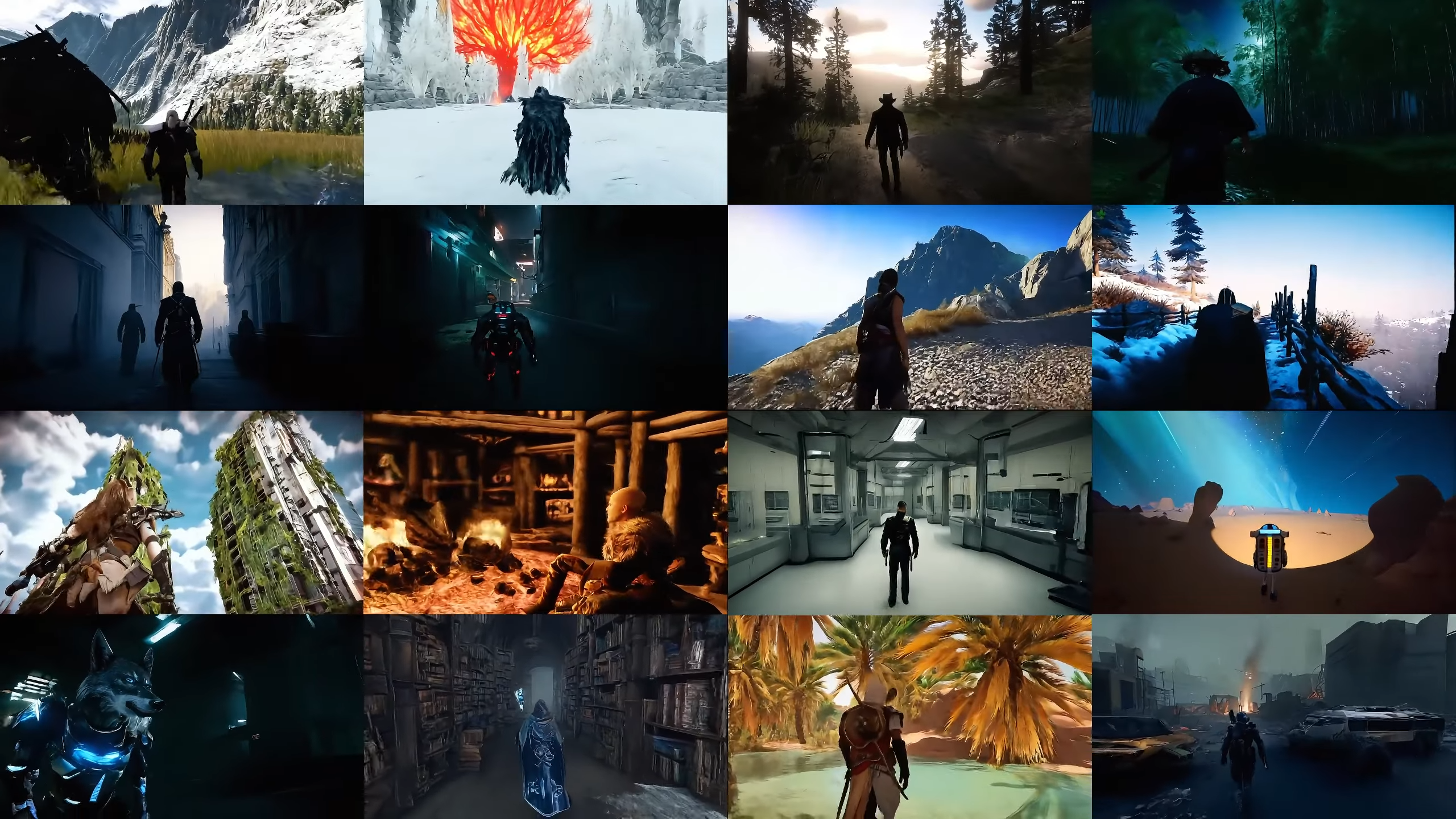New AI model GameGen-O creates open-world video game simulations

Researchers from universities in Hong Kong and China, along with Tencent, have developed GameGen-O, an AI model that can create simulations of open-world video games.
Accotding to the research team, GameGen-O can generate various game elements, including characters, environments, actions, and events. The model also offers interactive controls for what the researchers call "gameplay simulation."
These are not fully playable games, but rather a tool that developers can use to quickly create prototypes and test different game elements without having to build them from scratch, it seems.
The demo videos clearly show scenes from copyrighted games, with well-known franchises easily recognizable. This will likely spark further discussions about copyright issues.
https://www.youtube.com/watch?v=3WFdYFmDyuo
To create GameGen-O, the researchers first built a large dataset called "OGameData," which includes processed data from over 100 modern open-world games. They then trained the model in two stages: First, it learned to generate various game content based on OGameData. Next, they added an "InstructNet" component to enable interactive control of the generated content.
Advancing generative AI for game development
The researchers see GameGen-O as a significant step forward in using AI to generate open-world video games. It demonstrates the potential to serve as an alternative to traditional rendering techniques by combining "creative generation with interactive capabilities."
According to the team, GameGen-O could be a valuable resource for researchers and developers. It allows for exploring various applications such as developing AI for video games, interactive control, and immersive virtual environments.
https://www.youtube.com/watch?v=Mhg3f0Lm1-I
Recently, researchers from Google Research, Google DeepMind, and Tel Aviv University demonstrated GameNGen, an AI system that can fully simulate and play back the classic game DOOM in real time at over 20 frames per second.
AI News Without the Hype – Curated by Humans
As a THE DECODER subscriber, you get ad-free reading, our weekly AI newsletter, the exclusive "AI Radar" Frontier Report 6× per year, access to comments, and our complete archive.
Subscribe nowAI news without the hype
Curated by humans.
- Over 20 percent launch discount.
- Read without distractions – no Google ads.
- Access to comments and community discussions.
- Weekly AI newsletter.
- 6 times a year: “AI Radar” – deep dives on key AI topics.
- Up to 25 % off on KI Pro online events.
- Access to our full ten-year archive.
- Get the latest AI news from The Decoder.